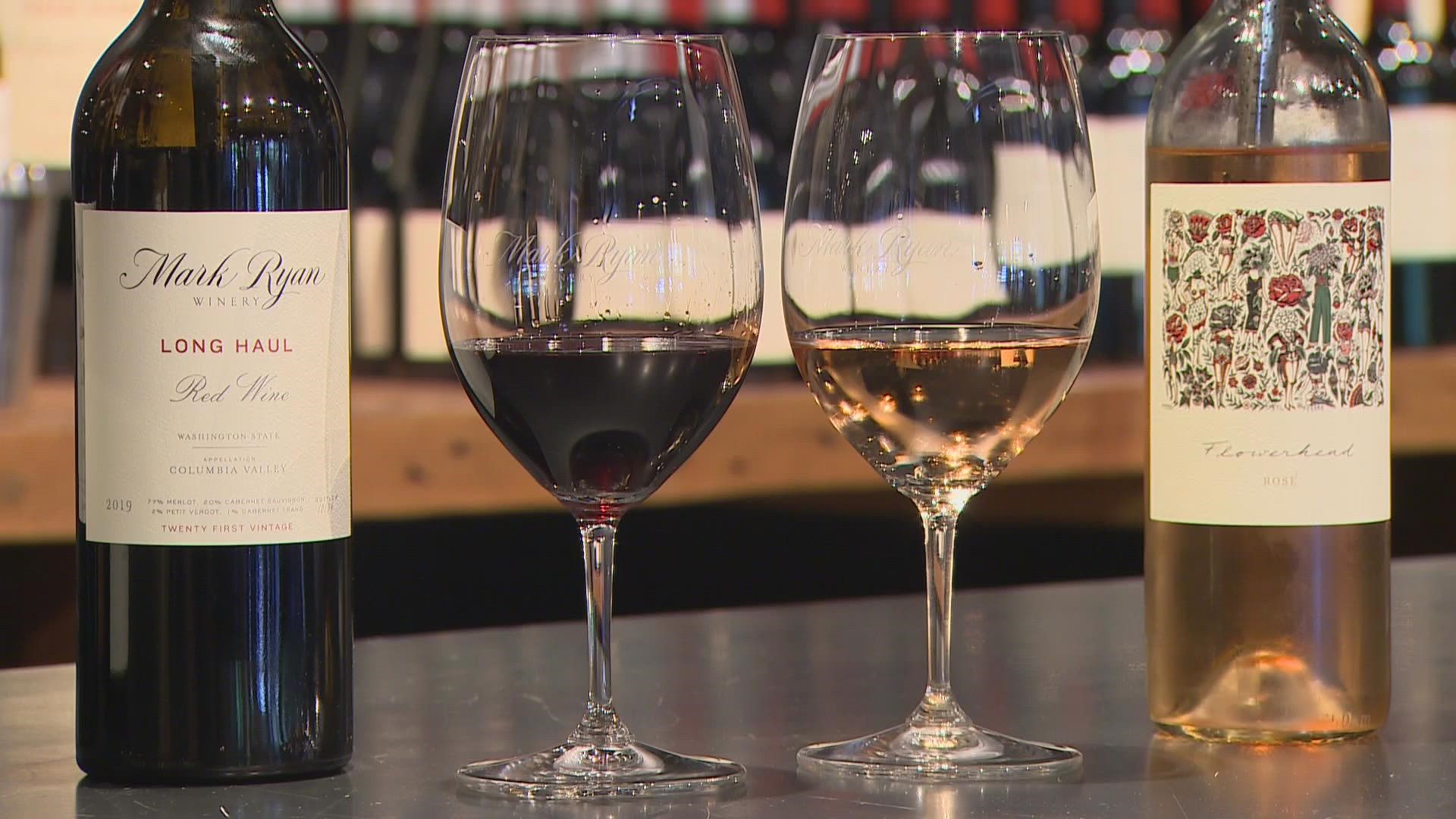WOODINVILLE, Wash. — Washington’s wine industry is booming, but could wine grapes become the new “apples” of the state?
From cabernet, syrah, pinot gris, rosé, or however you like your pour, Woodinville has glass for you.
“I was the 19th winery in Woodinville when I showed up here in about 2001,” said Mark Ryan McNeilly, owner of Mark Ryan Winery, which has a tasting room in Woodinville.
Woodinville is the hub for great wines in western Washington, and it’s only growing.
“I bet you we have 140 wineries and tasting rooms here in Woodinville, so lots of growth,” said McNeilly.
The growth in Woodinville is only a sampling of the Washington wine industry as a whole.
McNeilly opened Mark Ryan Winery in 1999 and has since watched as the local industry has gone global. He returned this week from a trip to London where interest in Washington wines is in peak season.
“People were not only excited about the fact that we were there, but they knew about Washington state, they knew about Red Mountain and Walla Walla,” McNeilly said. “So, it felt good to show up and have these, a really good group of wine buyers looking for the wines that we’re making.”
With the growth in the wine industry, could grapes soon outpace apples as the fruit of Washington?
According to data given to KING 5 by the United States Department of Agriculture, apples took up 172,000 bearing acres in Washington in 2021. For wine grapes, it was 57,000 acres.
In terms of value, in 2021, the value of utilized production for Washington apples was $2.1 billion. Wine grapes were far behind at $262 million.
But it’s when those grapes are turned to wine that calls this all into question.
According to data from the Washington State Wine Commission, wine-generated revenues in Washington state were $3.9 billion in 2020. However, that includes revenue from wine tourism in Washington as well.
“It’s a little surprising to hear that, but then I drive back and forth all over the state of Washington, and it’s apples and it’s grapes. So, we see a lot of both,” McNeilly said. “I think there’s more acres of apples planted, but I think the revenue is greater for wine.”
There’s not as much of a tourism route for apples, and that’s what is bringing in the revenue for wine.
“You can’t sell an apple for $100,” said McNeilly.
With travel limited through the COVID-19 pandemic, tourism revenue was lower than normal. But McNeilly said they’ve never sold more wine than they are now, and tourism is picking back up.

